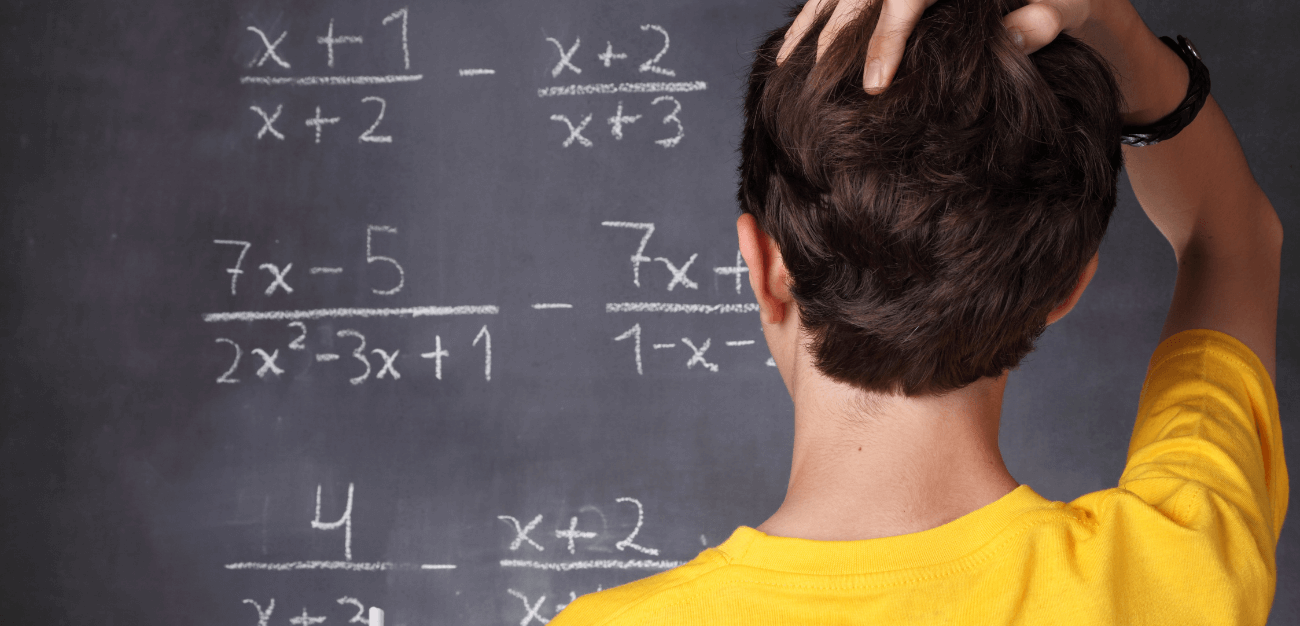As parents of school-aged children, it can be disheartening to watch your child struggle with a subject as fundamental as algebra. It has a reputation as one of the most challenging subjects in math, and many students face difficulty understanding and engaging with the material. Whether this is due to an inadequate curriculum or lack of interest on the part of the student, it’s important to identify why and how students are struggling—and find ways to help them understand these types of math operations. In this blog post, we’ll look at potential causes behind these struggles and offer advice on math learning techniques to help support your child with algebra today!
A Dreaded Topic
Math can be difficult for many students, with algebra being one of the most dreaded topics. Whether it be struggling to solve equations or an innate dislike for algebraic concepts, it is all too common for students to want to avoid even discussing algebra altogether due to an overwhelming sense of anxiety. Let’s face it, children are not often heard squealing with delight, “math is fun” when practicing algebra.
Feeling anxious when dealing with math is common and is often referred to as “math anxiety.” Math anxiety is a feeling of discomfort, worry, or worry-based avoidance related to math. It can range from mild to severe, and the symptoms may vary from person to person. Often math anxiety is experienced as an intense fear of math which may cause individuals to freeze up, experience difficulty concentrating, understanding math concepts, or recalling math facts quickly.
With math anxiety, it can be more difficult to make connections between equations and concepts due to the lack of comfort and security around math content. In some cases, math anxiety may even lead to procrastination when doing math homework or taking tests involving math. To help students manage math anxiety, teachers and parents need to identify these feelings early on and develop strategies like deep breathing exercises, writing down thoughts in a math journal, and practicing self-talk such as “I can do this” etc.
Building An Understanding
Math is a significant subject to build a strong understanding of, as it relies heavily on correctly understanding the basics. If missed concepts go unchecked, it can lead to further difficulty in math problems that involve more complex calculations. Students must ensure they understand the fundamentals before attempting harder math equations; without them, they may not be able to find solutions correctly, leading to frustration.
When it comes to algebra, it serves as the fundamental building block for higher mathematics. Without a good understanding of algebra’s basic principles, complex algebraic formulas and equations become much more difficult to comprehend.
When students move on from algebra without achieving mastery of its basics, their knowledge gap becomes increasingly more apparent in subsequent levels of math, making it hard to understand even the most simple concepts of higher-level mathematics.
This is an important concept to keep in mind if your child is struggling with algebra. They may be running into trouble because of missed learning of basic fundamentals.
Using Algebra In The Real World
Algebra can seem like a scary subject to many, but it is possible that this difficulty is not inherent in algebra itself but rather in the way it is being taught. Many educators have pointed out that algebra instruction often disregards the reality of its application outside of worksheets and exams, lacking an intuitive understanding of how algebra concepts are actually used in the real world. As such, if your child is struggling with algebra, there may be a disconnect between the knowledge they have acquired through instruction and their ability to apply it.
If your child seems frustrated with algebra, developing new tactics to make learning easier is paramount. Such tactics may include interactive instructional videos, active learning activities and worksheets, or online questionnaires that present real-life scenarios in which algebra can be applied. Providing students with varied forms of engagement not only equips them to tackle modern-day problems but also helps foster enthusiasm for algebra by allowing them to explore its wide-reaching areas within mathematics.
The Top Three Reasons
While there can be multiple reasons for your child struggling with algebra, our list includes the top three reasons we encounter daily. If your child does appear to struggle with algebra, the best course of action is to get them help as soon as possible. As previously mentioned, math is a concept that builds upon itself, so if a child is missing the basics, it will only continue to get more frustrating for them.
Doesn’t Have To Be Stressful
Despite algebra’s reputation, mastering it does not have to be associated with stress and difficulty.
Engaging in activities and exercises outside of the classroom and getting support from peers and instructors are all helpful strategies when facing algebra-related challenges.





